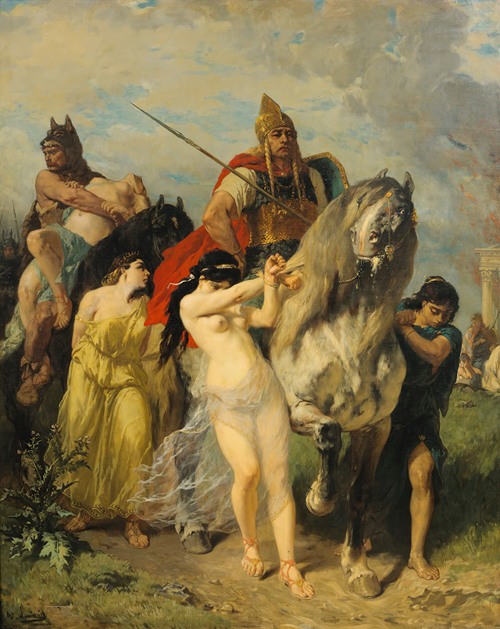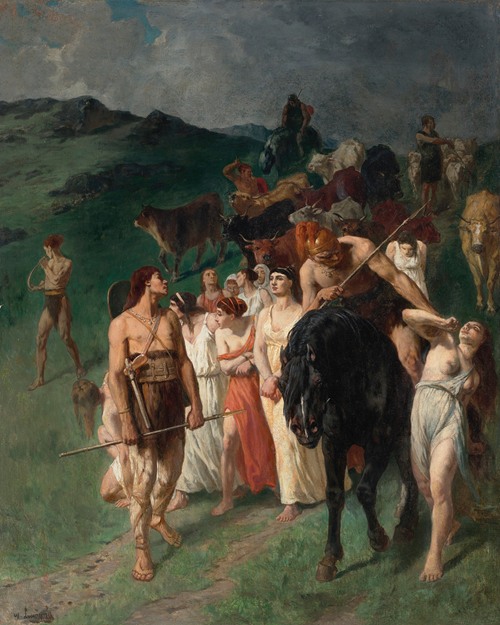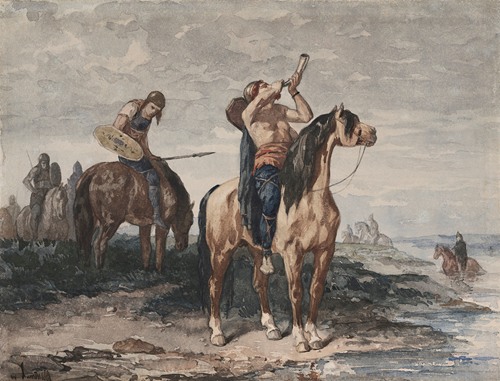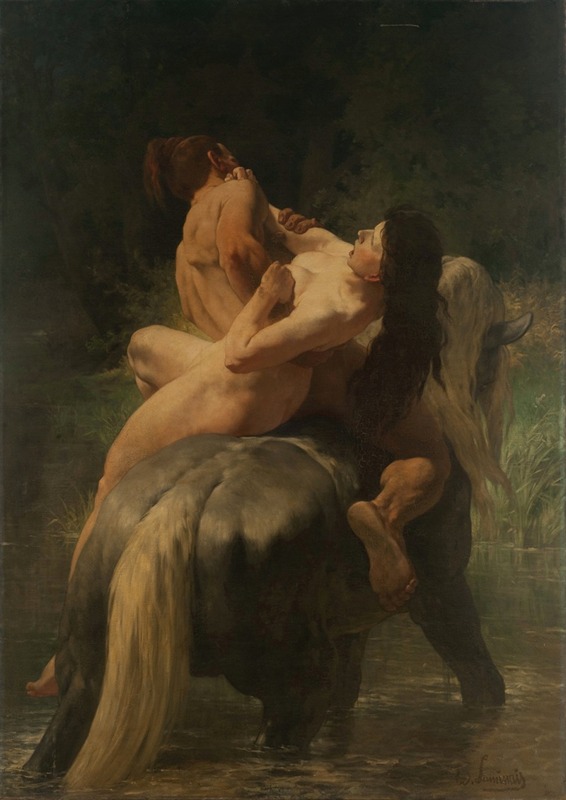
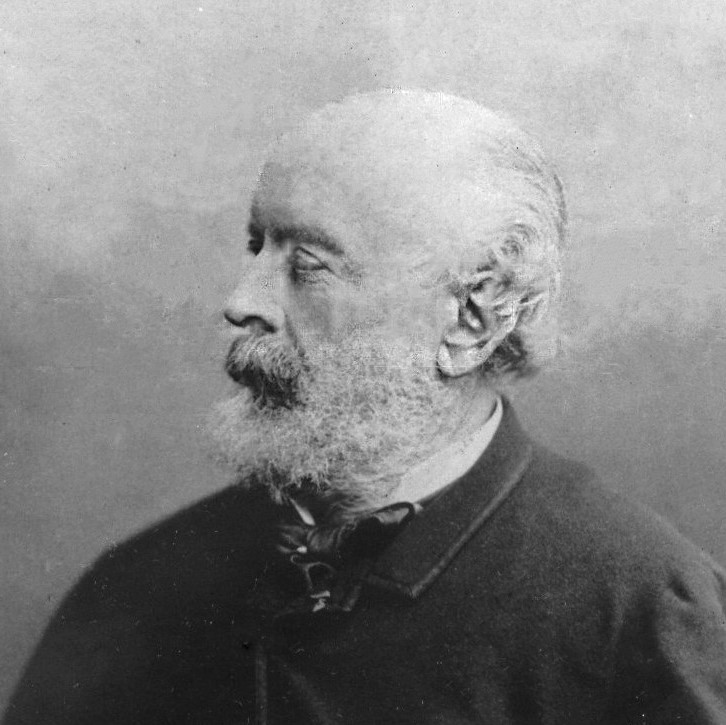
Évariste Vital Luminais was a French painter. He is best known for works depicting early French history and is sometimes called "the painter of the Gauls".
Luminais was born in Nantes into a parliamentary and legal family. His great-grandfather Michel Luminais was an official in the Vendée; his grandfather Michel-Pierre Luminais represented the Vendée in parliament from 1799 to 1803; and his father, René Marie Luminais, represented Loire-Inférieure from 1831 to 1834 and Indre-et-Loire from 1848 to 1849. Aware of his natural artistic talent, his family sent him to Paris when he was 18 to study with the painter and sculptor Auguste Debay. He also studied with Léon Cogniet, a historical and portrait painter whose pupils included Léon Bonnat, and Constant Troyon, who painted landscapes and animals.
He married twice. By his first wife, Anne Foiret, he had a daughter, Esther. After Anne's death in 1874, he remarried in 1876 to one of his pupils, Hélène de Sahuguet d'Amarzit d'Espagnac; she had been married to Claude Durand de Neuville but had been widowed in the War of 1870.
He made his official début at the 1843 Paris Salon, where two of his paintings were hung. He won medals at the Salons of 1852, 1855, 1857, 1861 and 1889. In 1869, he was awarded the Légion d'honneur. He won the gold medal at the 1889 Exposition, and was a founder member of the Société des Artistes Français. For more than forty years, he divided his time between his Paris studio at 17 boulevard Lannes and his summer house and studio in the village of Douadic, in the Brenne region. The area had been recommended to him by two friends, Jules de Vorys and Louis Fombelle. Among his students were Albert Maignan and Emily Sartain; he was one of the few Academy painters who would teach women.
Luminais died in Paris at the age of 75 and was buried in the little cemetery in Douadic. His native city of Nantes has a street named for him.

